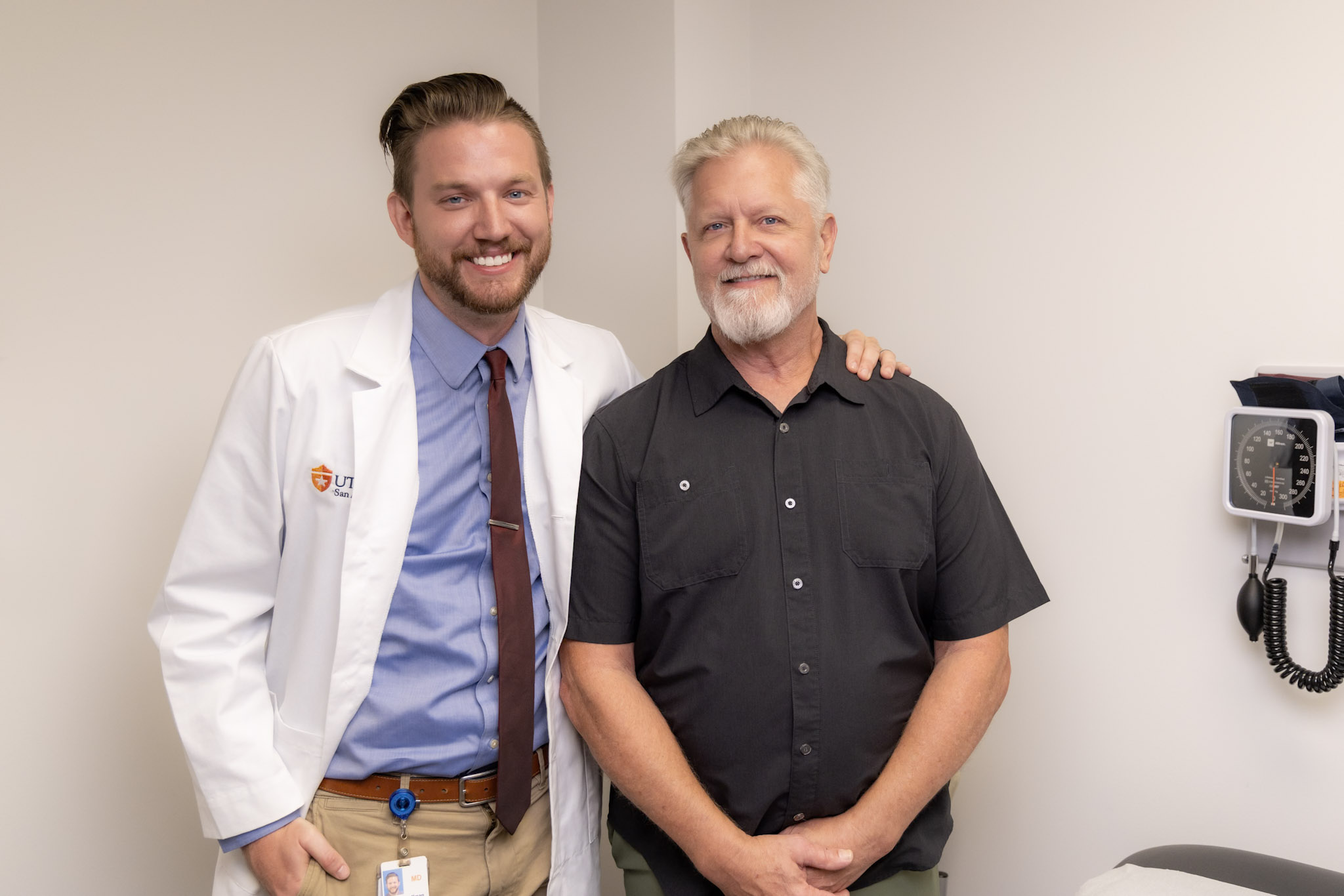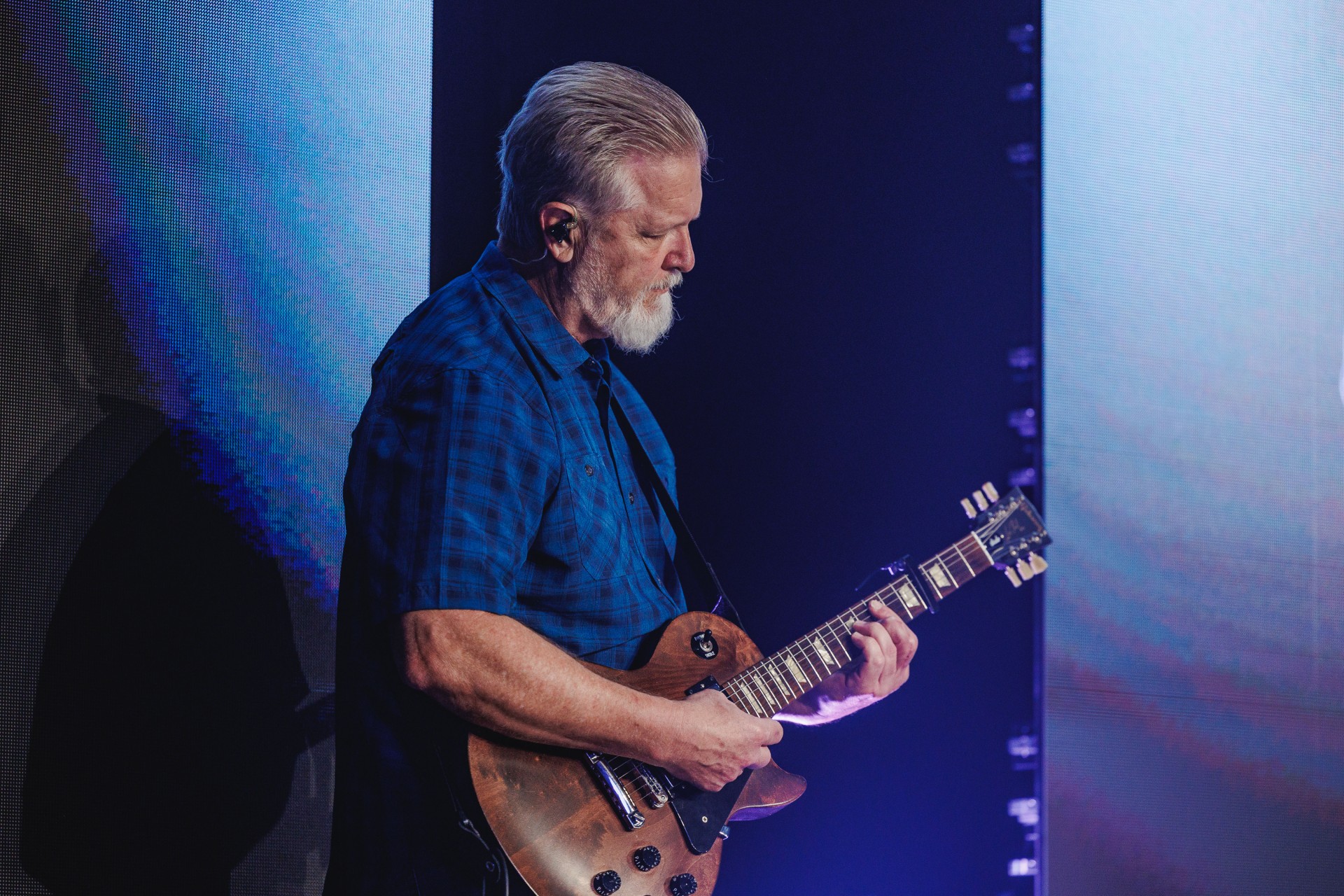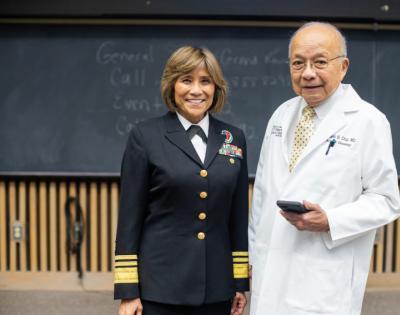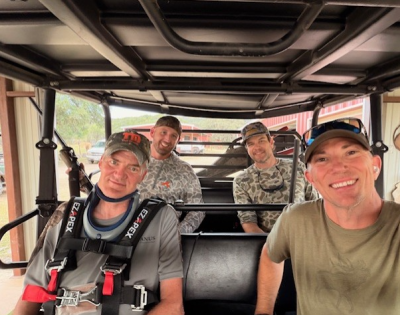"You sometimes run into doctors who see you as just a number, but I never got that with Dr. Coffman."
Brian Smothers
When the table saw slipped and cut into his hand, Brian Smothers's first thought wasn’t about the pain — it was the fear of losing the ability to play his guitar. For his entire adult life, the guitar served as a constant companion, representing a connection to his joy and faith.
Smothers first picked up a guitar at 18, learning the basics from a fellow airman during his time in the Air Force. As time passed, he learned to play more than fifty classic rock songs, nurturing a talent that later became a gift he shared through the worship band at Pearl Street Church in San Antonio.
In September 2024, Smothers feared his connection to music was in jeopardy. A skilled woodworker in his spare time, he spent Labor Day weekend in his home workshop when a table saw accident left his middle finger badly cut. Unlike the usual nicks, he knew right away this injury was serious.
Immediately, Smothers wrapped his hand and called his neighbor, who drove him to a local emergency room, and stayed by his side when the ambulance arrived to transport him to University Health Hospital. That is where he met Dr. Jason Coffman, a UT Health San Antonio orthopedic surgeon.
Among his worries, one fear stood out — the injury was to his fretting hand.
The road to recovery
The first question he asked Dr. Coffman, after informing him of his place on the worship team, was if he would ever be able to play guitar again. Smothers recalls Dr. Coffman’s transparency when assessing the wound, semi-optimistic that he would regain full mobility of his finger. With Dr. Coffman and his care team by his side, Smothers underwent surgery the next day and returned home that afternoon.
Surgery was only the first step on the road to healing. Recovery required lengthy therapy and trust in his care team. Smothers returned to Dr. Coffman for regular checkups and met with Jessica Petterson, an occupational therapist, weekly for more than three months to focus on his mobility.
“I was just trying to get to where I could play a basic chord again. There was no song. I was just trying to fret a chord."
Finding gratitude in healing
Although the way he played the guitar would never be the same, Smothers remained determined to adapt. During recovery, he practiced guitar regularly, sometimes for five hours a day, until he was finally ready to perform again. Eight months after his injury, he stepped back on stage, celebrating his faith and passion for music.
"You sometimes run into doctors who see you as just a number, but I never got that from Dr. Coffman," Smothers says, recalling his experience in the emergency room. "he was genuinely concerned with what was going on with me."
Feeling blessed to have regained some mobility in his finger, Smothers wrote a note of gratitude in honor of Dr. Coffman — an unexpected reminder of the meaningful work done by health care workers.
Jason Coffman, MD, Department of OrthopaedicsWe don't always get to see how our work affects patients in bigger ways. When I hear back from a patient about how they're able to return to their regular lives and do the things they love, it makes our time here so much more meaningful.

For many patients, the impact goes beyond excellent, compassionate care — It’s about restoring health and helping them return to what they love.
For Smothers, that means picking up his guitar again and playing music with gratitude and faith.




